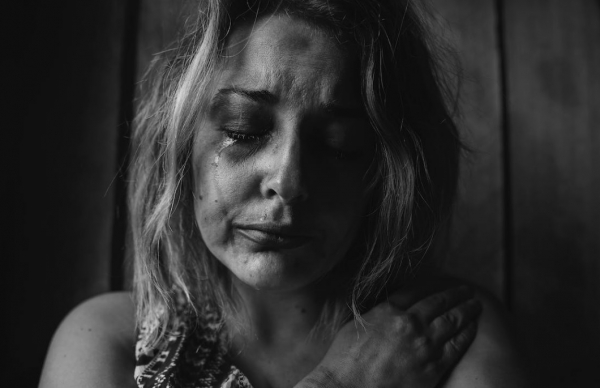
Sexual abuse victims are not always at liberty to discuss the horrors that they experienced at the hands of their abusers. Often, sexual abuse survivors choose to remain silent about their ordeal for fear of humiliation and retaliation, especially when the abuser is someone in power.
In rape cases, for example, some victims do not report the abuse to authorities since their abuser is their intimate partner or relative. Some victims think that a spousal rape case would not progress in court since the spouse has sexual rights with them.
For some, the idea of having the public know about their ordeal is the last thing they want to happen, so they choose to keep the abuse to themselves.
This is why it's crucial not only for the abused person but also for those surrounding them (like family and friends) to be on the lookout for some tell-tale signs of abuse. Some of these signs could be pretty obvious, but there are indications of abuse that are harder to spot by untrained eyes.
Here are some tips on how to spot, prevent, and handle instances of sexual abuse in religious institutions, public spaces, and private residences:
Spotting Sexual Abuse
The ability to spot signs of sexual abuse can be life-changing for the survivor since the abuse could be stopped. Often, it could be life-saving, particularly in cases where the abuser has violent tendencies.
Here are some tips on how you can spot indications of sexual abuse:
-
Fear with the prospect of being left alone with a person. Sexual abuse survivors naturally do not want to be left alone with their abusers, which is why one clear indicator of a person being abused is an observable sign of fear when presented with the idea.
-
Physical injuries. Survivors are frequently physically attacked by their abusers, many of which leave marks on the body. When you see signs of physical injuries, inquire discreetly about their cause to verify your hunch.
-
Withdrawal. Many survivors would suddenly withdraw from society and choose to be left alone. If someone you know was naturally outgoing and suddenly shows signs of withdrawal from being with people, it could signal that the person is being abused.
-
Sudden drop in performance/activities. Just like withdrawal, an abrupt drop in a person's physical or academic performance or loss of interest in doing activities could mean abuse.
-
Unusual interest/curiosity in sexual matters. Some survivors would suddenly show interest in matters about sex or sexuality to understand the abuse being done to them. If the person asks questions out of character or inappropriate for their age, it could be a symptom of sexual abuse.
Sex Abuse Prevention
Prevention, of course, is always better than cure. Ideally, you would want to stop possible abuse at the earliest time. It can be done through education or exercising due diligence and care to avoid compromising and dangerous situations.
Be sure to take note of the following ways of preventing sexual abuse:
-
Stay within a safe and comfortable zone. While sexual abuse could happen practically anywhere, some places are more conducive to sexual attacks than all others. These places typically include isolated rooms, dark areas, and places without high foot traffic, like alleyways. Make sure that you or someone you know would always be mindful of the surroundings and try to avoid such areas.
-
Watch for red flags in people's behavior. If a person acts strange or violently, staying as far away as possible from such an individual is best. If the person tries to intoxicate someone at a party, it's another red flag that could lead to a sexual assault.
-
Trust your guts. There have been many instances when trusting one's gut is the best way to avoid a possible sexual attack. If your inner feeling tells you that a person is troublesome, it could be best to trust your gut and detach yourself from that individual.
-
Don't take drugs or alcohol. Whether it's you or someone you know, it's always best not to take illicit substances and alcoholic beverages. These substances could significantly impair one's awareness and judgment, which is what an attacker only needs to see to launch the assault.
-
Be with a trusted person and let someone know the details of your whereabouts. Having someone you know aware of where you are and the time you should be at home could save you or your loved one from being sexually abused. Also, it's always wise to be in the company of someone you trust, as it serves as a safeguard should you be incapacitated in any way (like being drunk or disorientated).
Handling Sex Abuse
What if the abuse had already happened despite all efforts to avoid it? It's now time to act, and quickly at that.
These are some tips on how you should handle sexual abuse:
-
Call the police. It's always best to inform the police about a sexual assault as soon as possible. Whether the attack happened with you or with someone you know, involving the local enforcement authorities could lead to a quick arrest or stop the abuse.
-
Get professional help. Following a sexual assault, the survivor would typically feel many negative emotions, which, if not addressed or handled correctly, could lead to further suffering. Be sure to immediately seek professional help (from a mental health service provider), so the emotions can be processed and the toll on mental health addressed outright.
-
Be with people you love and trust. If you're a survivor of sexual abuse, you could find solace and healing in the company of people you trust and love. You or someone you know do not have to suffer alone or find healing on your own. Many within your circle could offer the assistance required to deal with the situation.
Related Article: 8 Tips How Christians Should Respond to 'New Age' of Persecution

















